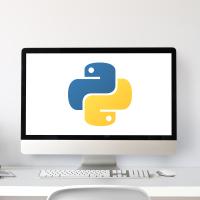IBM Data Science Professional Certificate Online
Ready yourself for a professional career in data science with IBM data science online courses that prepare you to perform data analytics and apply ML techniques to cloud computing.
Franklin University has partnered with Coursera Campus to provide cutting-edge certificates to learners seeking to advance. Courses are open to all learners. No application required.
Included in your subscription
Get unlimited access to over 10,000 offerings found on the Coursera website – including guided projects, specializations and professional certificates offered by hundreds of leading universities and companies. You also get access to all 46 professional certificates found in the Franklin Marketplace.
LEARN MOREWhat You Will Learn
- Gain a fundamental understanding of the role of the data science professional and the tools and methodologies used to inform data-driven decision making
- Learn to apply data science tools, languages and libraries, including databases and SQL, to solve real-world data science problems
- Use Python and data analysis libraries to load, manipulate, analyze and visualize data
- Dive into machine learning (ML) and practice ML skills, such as regression, classification, clustering, sci-kit learn and SCiPy
About the IBM Data Science Professional Certificate
Aspiring data scientists will find the IBM Data Science Professional Certificate program to be ideal for quickly and confidently learning what data science is and how data scientists think and work.
If you're mathematically minded as well as inquisitive, this specialized certificate program is for you. This program, developed by IBM, is specifically designed to jumpstart your career in the hottest fields with the best occupation: data science and machine learning (ML).
This self-paced program consists of 10 courses, each designed to help you develop hands-on skills and experience with the top-notch data science tools, languages and libraries.
Your studies will take you on a data science and ML journey that includes working with open source tools and libraries, the Python programming language, databases and SQL queries, statistical and data analysis, predictive modeling, machine learning algorithms and data visualizations.
Through a series of applied learning labs in the IBM cloud, you'll also acquire practical skills in Jupyter/Jupyter Lab, GitHub, R Studio and Watson Studio. Plus, you'll work highly regarded data libraries like Pandas, NumPy, Matplotlib, Seaborn, Folium, ipython-sql, Scikit-learn and ScipPy. Finally, your assignments will culminate in the creation of a professional, attention-getting portfolio you can share with prospective employers to land that first career position.
Required IBM Data Science Professional Certificate Courses

BEGINNER | Data Science | Self-paced | 11 hours
Do you want to know why data science has been labeled the sexiest profession of the 21st century? After taking this course, you will be able to answer this question, understand what data science is and what data scientists do, and learn about career paths in the field. The art of uncovering insights and trends in data has been around since ancient times. The ancient Egyptians used census data to increase efficiency in tax collection and accurately predicted the Nile River's flooding every year. Since then, people have continued to use data to derive insights and predict outcomes. Recently, they have carved out a unique and distinct field for the work they do. This field is data science. In today's world, we use Data Science to find patterns in data and make meaningful, data-driven conclusions and predictions. This course is for everyone and teaches concepts like how data scientists use machine learning and deep learning and how companies apply data science in business. You will meet several data scientists, who will share their insights and experiences in data science. By taking this introductory course, you will begin your journey into this thriving field.
BEGINNER | Data Science | Self-paced | 19 hours
In order to be successful in Data Science, you need to be skilled with using tools that Data Science professionals employ as part of their jobs. This course teaches you about the popular tools in Data Science and how to use them. You will become familiar with the Data Scientist’s tool kit which includes: Libraries & Packages, Data Sets, Machine Learning Models, Kernels, as well as the various Open source, commercial, Big Data and Cloud-based tools. Work with Jupyter Notebooks, JupyterLab, RStudio IDE, Git, GitHub, and Watson Studio. You will understand what each tool is used for, what programming languages they can execute, their features and limitations. This course gives plenty of hands-on experience in order to develop skills for working with these Data Science Tools. With the tools hosted in the cloud on Skills Network Labs, you will be able to test each tool and follow instructions to run simple code in Python, R, or Scala. Towards the end the course, you will create a final project with a Jupyter Notebook. You will demonstrate your proficiency preparing a notebook, writing Markdown, and sharing your work with your peers.
BEGINNER | Data Science | Self-paced | 6 hours
If there is a shortcut to becoming a Data Scientist, then learning to think and work like a successful Data Scientist is it. In this course, you will learn and then apply this methodology that you can use to tackle any Data Science scenario. You’ll explore two notable data science methodologies, Foundational Data Science Methodology, and the six-stage CRISP-DM data science methodology, and learn how to apply these data science methodologies. Most established data scientists follow these or similar methodologies for solving data science problems. Begin by learning about forming the business/research problem Learn how data scientists obtain, prepare, and analyze data. Discover how applying data science methodology practices helps ensure that the data used for problem-solving is relevant and properly manipulated to address the question. Next, learn about building the data model, deploying that model, data storytelling, and obtaining feedback You’ll think like a data scientist and develop your data science methodology skills using a real-world inspired scenario through progressive labs hosted within Jupyter Notebooks and using Python.
BEGINNER | Data Science | Self-paced | 25 hours
Kickstart your learning of Python with this beginner-friendly self-paced course taught by an expert. Python is one of the most popular languages in the programming and data science world and demand for individuals who have the ability to apply Python has never been higher. This introduction to Python course will take you from zero to programming in Python in a matter of hours—no prior programming experience necessary! You will learn about Python basics and the different data types. You will familiarize yourself with Python Data structures like List and Tuples, as well as logic concepts like conditions and branching. You will use Python libraries such as Pandas, Numpy & Beautiful Soup. You’ll also use Python to perform tasks such as data collection and web scraping with APIs. You will practice and apply what you learn through hands-on labs using Jupyter Notebooks. By the end of this course, you’ll feel comfortable creating basic programs, working with data, and automating real-world tasks using Python. This course is suitable for anyone who wants to learn Data Science, Data Analytics, Software Development, Data Engineering, AI, and DevOps as well as a number of other job roles.
INTERMEDIATE | Data Science | Self-paced | 9 hours
This mini-course is intended to for you to demonstrate foundational Python skills for working with data. This course primarily involves completing a project in which you will assume the role of a Data Scientist or a Data Analyst and be provided with a real-world data set and a real-world inspired scenario to identify patterns and trends. You will perform specific data science and data analytics tasks such as extracting data, web scraping, visualizing data and creating a dashboard. This project will showcase your proficiency with Python and using libraries such as Pandas and Beautiful Soup within a Jupyter Notebook. Upon completion you will have an impressive project to add to your job portfolio. PRE-REQUISITE: **Python for Data Science, AI and Development** course from IBM is a pre-requisite for this project course. Please ensure that before taking this course you have either completed the Python for Data Science, AI and Development course from IBM or have equivalent proficiency in working with Python and data. NOTE: This course is not intended to teach you Python and does not have too much instructional content. It is intended for you to apply prior Python knowledge.
BEGINNER | Data Science | Self-paced | 19 hours
Working knowledge of SQL (or Structured Query Language) is a must for data professionals like Data Scientists, Data Analysts and Data Engineers. Much of the world's data resides in databases. SQL is a powerful language used for communicating with and extracting data from databases. In this course you will learn SQL inside out- from the very basics of Select statements to advanced concepts like JOINs. You will: -write foundational SQL statements like: SELECT, INSERT, UPDATE, and DELETE -filter result sets, use WHERE, COUNT, DISTINCT, and LIMIT clauses -differentiate between DML & DDL -CREATE, ALTER, DROP and load tables -use string patterns and ranges; ORDER and GROUP result sets, and built-in database functions -build sub-queries and query data from multiple tables -access databases as a data scientist using Jupyter notebooks with SQL and Python -work with advanced concepts like Stored Procedures, Views, ACID Transactions, Inner & Outer JOINs through hands-on labs and projects You will practice building SQL queries, work with real databases on the Cloud, and use real data science tools. In the final project you’ll analyze multiple real-world datasets to demonstrate your skills.
INTERMEDIATE | Data Science | Self-paced | 16 hours
Analyzing data with Python is an essential skill for Data Scientists and Data Analysts. This course will take you from the basics of data analysis with Python to building and evaluating data models. Topics covered include: - collecting and importing data - cleaning, preparing & formatting data - data frame manipulation - summarizing data - building machine learning regression models - model refinement - creating data pipelines You will learn how to import data from multiple sources, clean and wrangle data, perform exploratory data analysis (EDA), and create meaningful data visualizations. You will then predict future trends from data by developing linear, multiple, polynomial regression models & pipelines and learn how to evaluate them. In addition to video lectures you will learn and practice using hands-on labs and projects. You will work with several open source Python libraries, including Pandas and Numpy to load, manipulate, analyze, and visualize cool datasets. You will also work with scipy and scikit-learn, to build machine learning models and make predictions. If you choose to take this course and earn the Coursera course certificate, you will also earn an IBM digital badge.
INTERMEDIATE | Data Science | Self-paced | 20 hours
One of the most important skills of successful data scientists and data analysts is the ability to tell a compelling story by visualizing data and findings in an approachable and stimulating way. In this course you will learn many ways to effectively visualize both small and large-scale data. You will be able to take data that at first glance has little meaning and present that data in a form that conveys insights. This course will teach you to work with many Data Visualization tools and techniques. You will learn to create various types of basic and advanced graphs and charts like: Waffle Charts, Area Plots, Histograms, Bar Charts, Pie Charts, Scatter Plots, Word Clouds, Choropleth Maps, and many more! You will also create interactive dashboards that allow even those without any Data Science experience to better understand data, and make more effective and informed decisions. You will learn hands-on by completing numerous labs and a final project to practice and apply the many aspects and techniques of Data Visualization using Jupyter Notebooks and a Cloud-based IDE. You will use several data visualization libraries in Python, including Matplotlib, Seaborn, Folium, Plotly & Dash.
INTERMEDIATE | Data Science | Self-paced | 20 hours
Python is one of the most widely used programming languages in machine learning (ML), and many ML job listings require it as a core skill. This course equips aspiring machine learning practitioners with essential Python skills that help them stand out to employers. Throughout the course, you’ll dive into core ML concepts and learn about the iterative nature of model development. With Python libraries like Scikit-learn, you’ll gain hands-on experience with tools used for real-world applications. Plus, you’ll build a foundation in statistical methods like linear and logistic regression. You’ll explore supervised learning techniques with libraries such as Matplotlib and Pandas, as well as classification methods like decision trees, KNN, and SVM, covering key concepts like the bias-variance tradeoff. The course also covers unsupervised learning, including clustering and dimensionality reduction. With guidance on model evaluation, tuning techniques, and practical projects in Jupyter Notebooks, you’ll gain the Python skills that power your ML journey. ENROLL TODAY to enhance your resume with in-demand expertise!
INTERMEDIATE | Data Science | Self-paced | 13 hours
This is the final course in the IBM Data Science Professional Certificate as well as the Applied Data Science with Python Specialization. This capstone project course will give you the chance to practice the work that data scientists do in real life when working with datasets. In this course you will assume the role of a Data Scientist working for a startup intending to compete with SpaceX, and in the process follow the Data Science methodology involving data collection, data wrangling, exploratory data analysis, data visualization, model development, model evaluation, and reporting your results to stakeholders. You will be tasked with predicting if the first stage of the SpaceX Falcon 9 rocket will land successfully. With the help of your Data Science findings and models, the competing startup you have been hired by can make more informed bids against SpaceX for a rocket launch. In this course, there will not be much new learning, instead you’ll focus on hands-on work to demonstrate and apply what you have learnt in previous courses. By successfully completing this Capstone you will have added a project to your data science and machine learning portfolio to showcase to employers.
INTERMEDIATE | Data Science | Self-paced | 13 hours
Generative AI is now mainstream. Boost your career with a course that features leading-edge, in-demand, generative AI skills tuned to the needs of data scientists. This course is suitable for existing and aspiring data scientists, data professionals, analysts, and engineers. The course addresses real-world data science problems data scientists encounter—across multiple industries— with data generation, data augmentation, and feature engineering. Gain skills you can immediately put to use implementing generative AI models and techniques that address these real-world issues. Then, learn how to use generative AI to speed data visualizations, build models and to produce data insights. You’ll also learn about key ethics considerations around generative AI and data, key concerns for executives across industries. Demonstrate your new generative AI skills in a hands-on data augmentation and feature engineering project that you can apply in your real-life profession. Then complete your final quiz to earn your certificate. You can share both your project and certificate with your current or prospective employers.
BEGINNER | Data Science | Self-paced | 9 hours
Data science professionals are in high demand around the world, and the trend shows no sign of slowing. There are lots of great jobs available, but lots of great candidates too. How can you get the edge in such a competitive field? This course will prepare you to enter the job market as a great candidate for a data scientist position. It provides practical techniques for creating essential job-seeking materials such as a resume and a portfolio, as well as auxiliary tools like a cover letter and an elevator pitch. You will learn how to find and assess prospective job positions, apply to them, and lay the groundwork for interviewing. The course doesn’t stop there, however. You will also get inside tips and steps you can use to perform professionally and effectively at interviews. You will learn how to approach a code challenge and get to practice completing them. Additionally, it provides guidance about the regular functions and tasks of data scientists, as well as the opportunities of the profession and some options for career development. Let seasoned professionals share their experience to help you get ahead and land the job you want!Complete This Certificate. Get College Credit.
You know that skill-specific courses will open the door to specialized jobs, but did you know that they will also move you closer to a degree at Franklin University?
The University has evaluated hundreds of certifications for industry-recognized proficiencies and awards credit that equates to specific Franklin courses, as well as technical- or elective-credit requirements. See how much time and money you'll save toward your degree by building on prior learning credit.
Browse & Filter

Bolster Your Professional Skills
Take back control or rethink your career by strengthening your skills with a Professional Certificate through Franklin. Learn, hone or master job-related skills with professional development classes that won't break the bank or gobble up your free time. These online courses let you feed your curiosity and develop new skills that have real value in the workplace. Learn at your own pace. Cancel your subscription anytime.

Showcase Your Capabilities
Through Franklin’s partnership with Coursera, Certificate courses let you apply your learnings and build a career portfolio that helps demonstrate your professional capabilities to employers. Whether you're moving into a new field or progressing in your current one, the hands-on projects offer real-world examples that help illustrate your skills and abilities. Project completion is required to earn your Certificate.

Gain a Competitive Advantage
Get noticed by hiring managers and by your network of professional connections when you add a Professional Certificate to your credentials. Many Certificates are step toward full certification while others are the start of a new career journey. At Franklin, your Certificate also may be evaluated for course credit if you decide to enroll in one of our many degree programs.
Frequently Asked Questions
When you enroll in this self-paced certificate program, you decide how quickly you want to complete each of the courses in the specialization. To access the courses, you pay a small monthly cost of $35, so the total cost of your Professional Certificate depends on you. Plus, you can take a break or cancel your subscription anytime.
It takes about 4-5 months to finish all the courses and hands-on projects to earn your certificate.
No prior experienced is needed for this beginner-level series. Enroll now.
Because your certificate has helped prepare you for a data science or business intelligence role, you can share your certificate as proof you've developed and honed your ability to use such data science tools as JupyterLab, Git, Watson Studio and more.
No. Courses offered through the Marketplace are for all learners. There is no application or admission process.
Please submit your certificate to plc@franklin.edu for review and processing. After your official evaluation has been completed, please review it to ensure that all eligible credits have been applied.
You can submit documentation before or after you apply to Franklin.